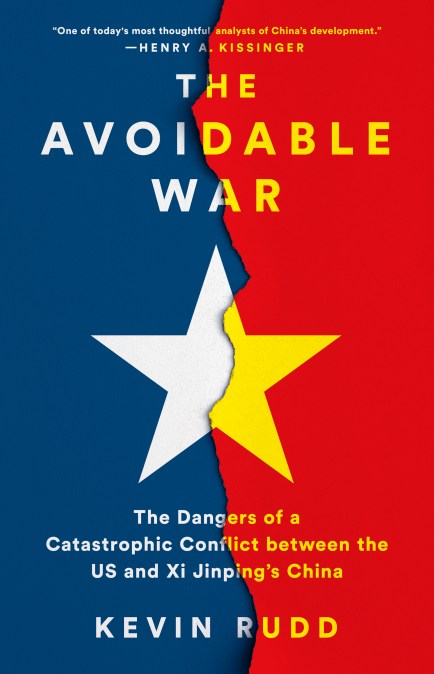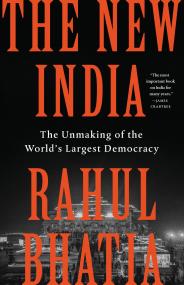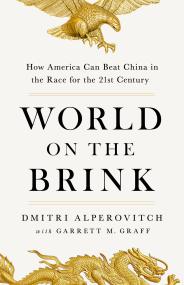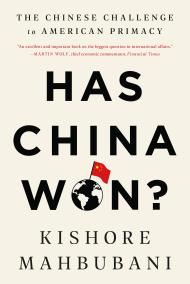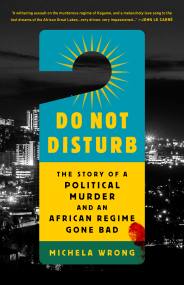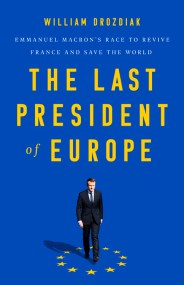“[P]enetrating and sensible… [a] worthy and ambitious intellectual re-creation."
—Kevin Peraino, New York Times
“Rudd’s book provides a rich and realistic portrayal of China’s motivations, as well as a stark warning to a world standing on the edge of a conflict potentially far more devastating than Russia’s recent invasion of Ukraine.”
—Financial Times
“Rudd directly confronts the growing possibility of war and offers well-thought-out proposals to prevent that catastrophic outcome and the ‘global carnage’ it would cause.”
—New York Review of Books
“[O]ne of the best primers on US-China relations.”
—The Telegraph
“Rudd has become one of the most influential Western commentators on relations between China and the West. He correctly takes the prospect of a war between the US and China very seriously and comes up with a plan to avert disaster.”
—Gideon Rachman, Financial Times, best summer books of 2022
“[A] probing analysis of the risks of war between China and the United States.”
—Irish Times
“Rudd, the former prime minister of Australia, debuts with an incisive analysis of the rising tensions between the U.S. and China. Surveying the cultural, historical, and ideological roots of the conflict, Rudd makes a convincing case that the two sides now regard ‘some form of armed conflict or confrontation’ as inevitable…. Shot through with reasoned analysis and evenhanded appraisals of both countries’ strengths and weaknesses, this is a valuable guide to de-escalating a global flashpoint.”
—Publishers Weekly
“An exploration of one of the world’s most significant and fraught international relationships… An accessible primer on the evolving China–U.S. rivalry.”
—Kirkus
“A lifelong student of China, Kevin Rudd has become one of today’s most thoughtful analysts of China’s development. The Avoidable War focuses on the signal challenge posed by China’s evolution to America and to world order. Can the US and China avoid sleepwalking into a conflict? Rudd offers constructive steps for the two powers to stabilize their relations.”
—Henry A. Kissinger
“Wise counsel from a seasoned statesman who recognizes the real risk of catastrophic war and illuminates a promising path the US and China could take to avoid it.”
—Graham Allison, Douglas Dillon Professor of Government at the Harvard Kennedy School, and author of Destined for War: Can America and China Escape Thucydides’s Trap?
“An extraordinary tour de force that analyzes the most important geopolitical relationship of the twenty-first-century. Organized, like Dante’s Inferno, into concentric circles that describe in brilliant detail the challenges ahead and a timely prescription to avoid a catastrophe. Let us truly hope that we can indeed avoid a war that looms upon us like a dark tower, threatening all the progress we have made.”
—Admiral James Stavridis, 16th supreme Allied Commander of NATO, former dean of the Fletcher School of Law and Diplomacy at Tufts University
“Based on a lifetime of observation and experience of China and America, Kevin Rudd has produced a rare book of wisdom and a detailed roadmap for how the two countries can manage their strategic competition and avoid a disastrous war.”
—Joseph S. Nye, Harvard University Distinguished Service Professor, Emeritus
“This is an important book and Mr Rudd, now president of the US-based Asia Society, makes his case powerfully.”
—The National (UAE)
“Kevin Rudd has written the year’s best China book…With thoroughness and precision, Rudd has assembled a wide array of information and historical background… it is one of the best single-volume surveys of the China issue available to the public.”
—Claremont Review of Books
“The Avoidable War is a deeply impressive work, and it is to be hoped that it will have a formative influence on the ‘China debate’ in the United States and other countries. Indeed, it may be that, decades hence, Rudd is remembered as a sort of successor to George Kennan—a powerful thinker who, early in the course of a titanic struggle, laid out a broad strategic outline marked by foresight, prudence, and careful assessment of the strategic culture and goals of a totalitarian superpower.”
—Comparative Strategy
